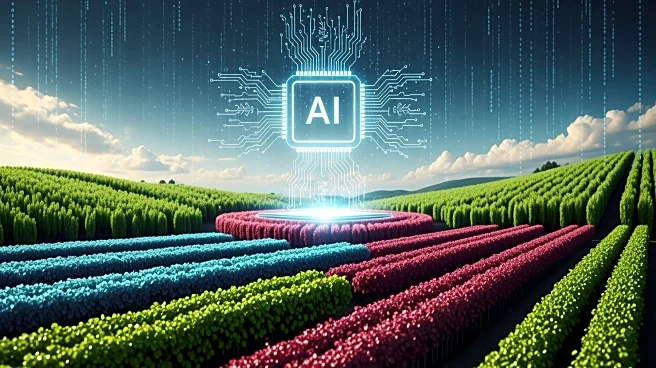What's Happening?
Wolters Kluwer, a global leader in AI-powered analytics and operational transformation, is set to present insights on the transformative role of artificial intelligence (AI) in agriculture lending at the American
Banker Association’s Agricultural Bankers Conference. The event, scheduled for November 12-14, 2025, will feature experts Rajiv Arora, Vice President of Decision Science & Operations, and Suzie Neff, Consultant and Industry Relations Lead for Collateral Based Lending. They will lead a session titled 'Revolutionizing AgLending: Opportunities and Challenges of AI Adoption,' focusing on how AI technologies are reshaping financial services. The session will include a case study on Wolters Kluwer’s iLien Borrower Analytics solution, demonstrating successful AI integration in the due diligence process.
Why It's Important?
The integration of AI in agriculture lending represents a significant shift in the financial services industry, offering both opportunities and challenges. By adopting AI, financial institutions can enhance their decision-making processes, improve operational efficiency, and better manage risks. This development is crucial for the agriculture sector, which relies heavily on timely and accurate financial services. The insights provided by Wolters Kluwer could help banks and lenders navigate the complexities of AI adoption, ensuring they remain competitive and responsive to the evolving needs of the agriculture industry. The session underscores the importance of responsible AI use, which is vital for maintaining trust and compliance in financial operations.
What's Next?
As financial institutions continue to explore AI integration, the insights from Wolters Kluwer's session could influence future strategies in agriculture lending. Banks may begin to implement AI solutions more broadly, potentially leading to industry-wide changes in how agricultural loans are assessed and managed. Stakeholders, including policymakers and industry leaders, may also engage in discussions about the regulatory implications of AI in financial services, ensuring that innovations align with legal and ethical standards.
Beyond the Headlines
The adoption of AI in agriculture lending could have broader implications for the financial industry, including shifts in employment as AI takes on more analytical roles traditionally held by humans. Additionally, the ethical use of AI in decision-making processes will be a critical consideration, as biases in AI algorithms could impact lending fairness. Long-term, the successful integration of AI could lead to more sustainable and resilient financial systems, benefiting both lenders and borrowers.









